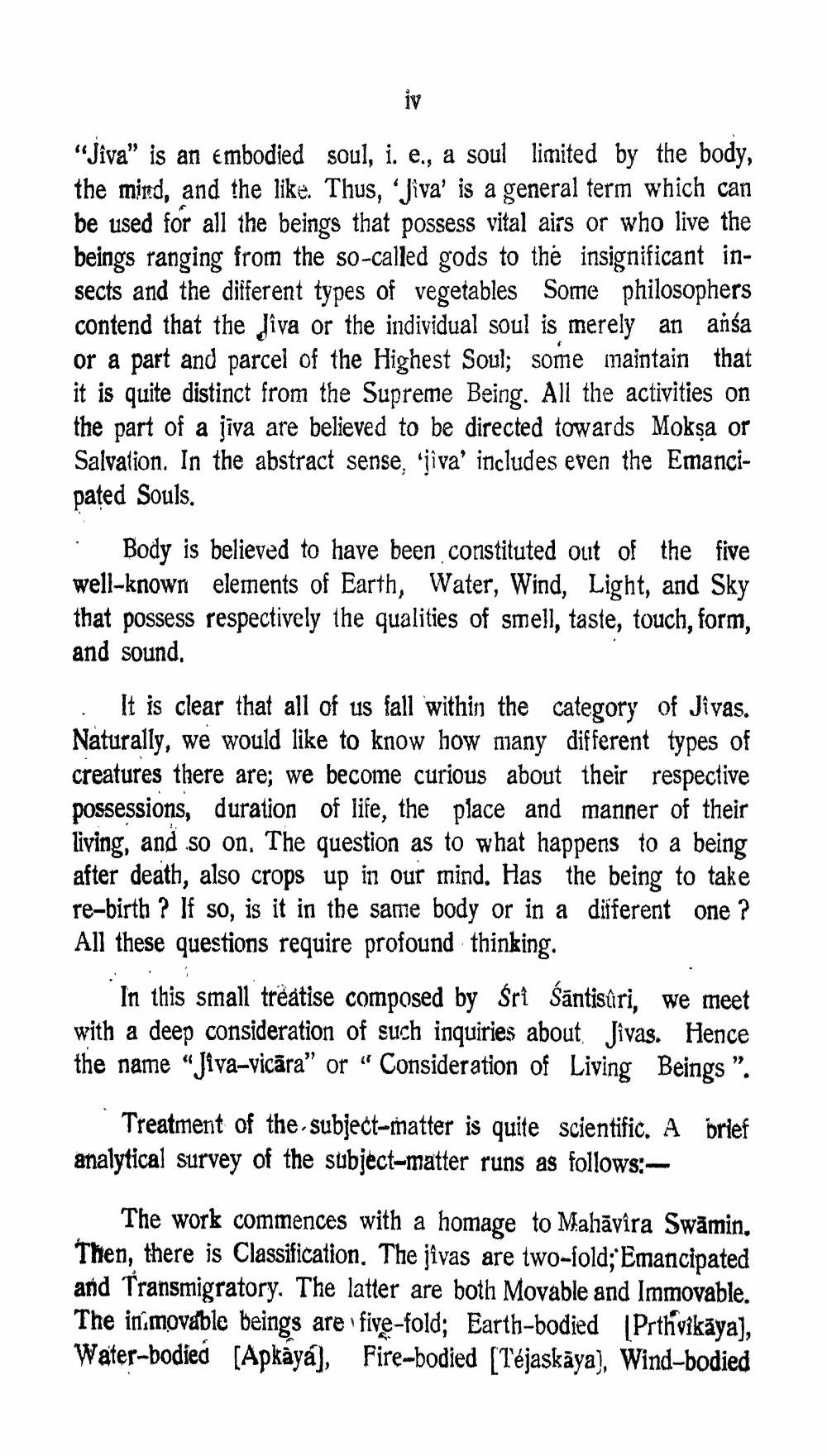________________
"Jiva” is an embodied soul, i. e., a soul limited by the body, the mind, and the like. Thus, Jiva’ is a general term which can be used for all the beings that possess vital airs or who live the beings ranging from the so-called gods to the insignificant insects and the different types of vegetables Some philosophers contend that the Jiva or the individual soul is merely an ansa or a part and parcel of the Highest Soul; some maintain that it is quite distinct from the Supreme Being. All the activities on the part of a jiva are believed to be directed towards Moksa or Salvation. In the abstract sense, 'jiva' includes even the Emancipated Souls.
: Body is believed to have been constituted out of the five well-known elements of Earth, Water, Wind, Light, and Sky that possess respectively the qualities of smell, taste, touch, form, and sound.
It is clear that all of us fall within the category of Jivas. Naturally, we would like to know how many different types of creatures there are; we become curious about their respective possessions, duration of life, the place and manner of their living, and so on. The question as to what happens to a being after death, also crops up in our mind. Has the being to take re-birth? If so, is it in the same body or in a different one? All these questions require profound thinking.
In this small treatise composed by Śrt śāntisûri, we meet with a deep consideration of such inquiries about Jivas. Hence the name "Jiva-vicāra" or "Consideration of Living Beings ".
· Treatment of the subject-matter is quite scientific. A analytical survey of the subject matter runs as follows:
brief
The work commences with a homage to Mahāvira Swāmin, Then, there is Classification. The jîvas are two-fold;Emancipated and Transmigratory. The latter are both Movable and Immovable. The inimovable beings are five-fold; Earth-bodied [Prthvikāya), Water-bodied [Apkāya], Fire-bodied [Téjaskäya), Wind-bodied




